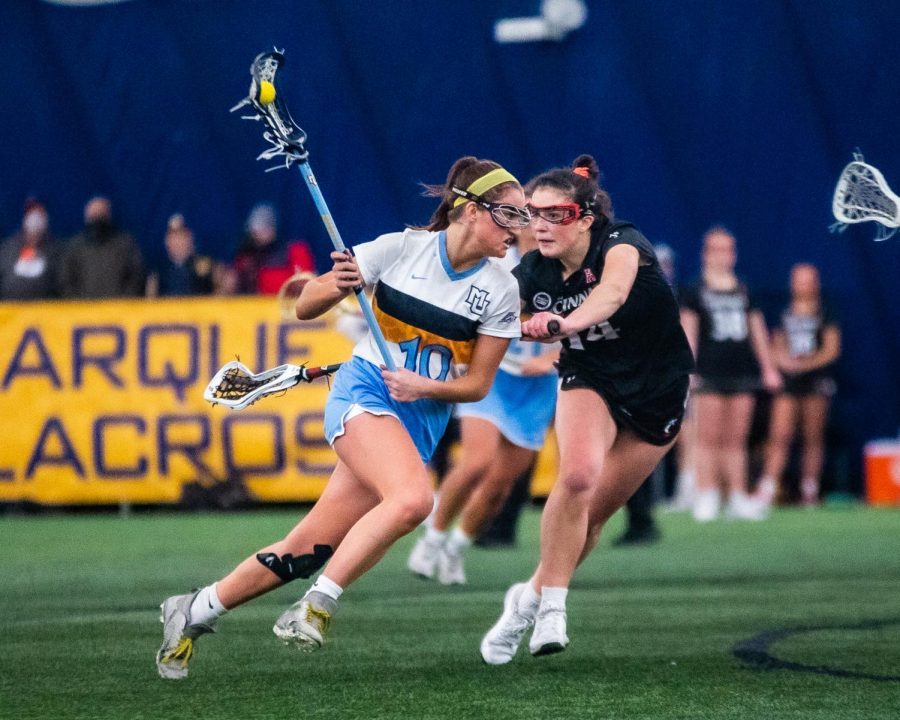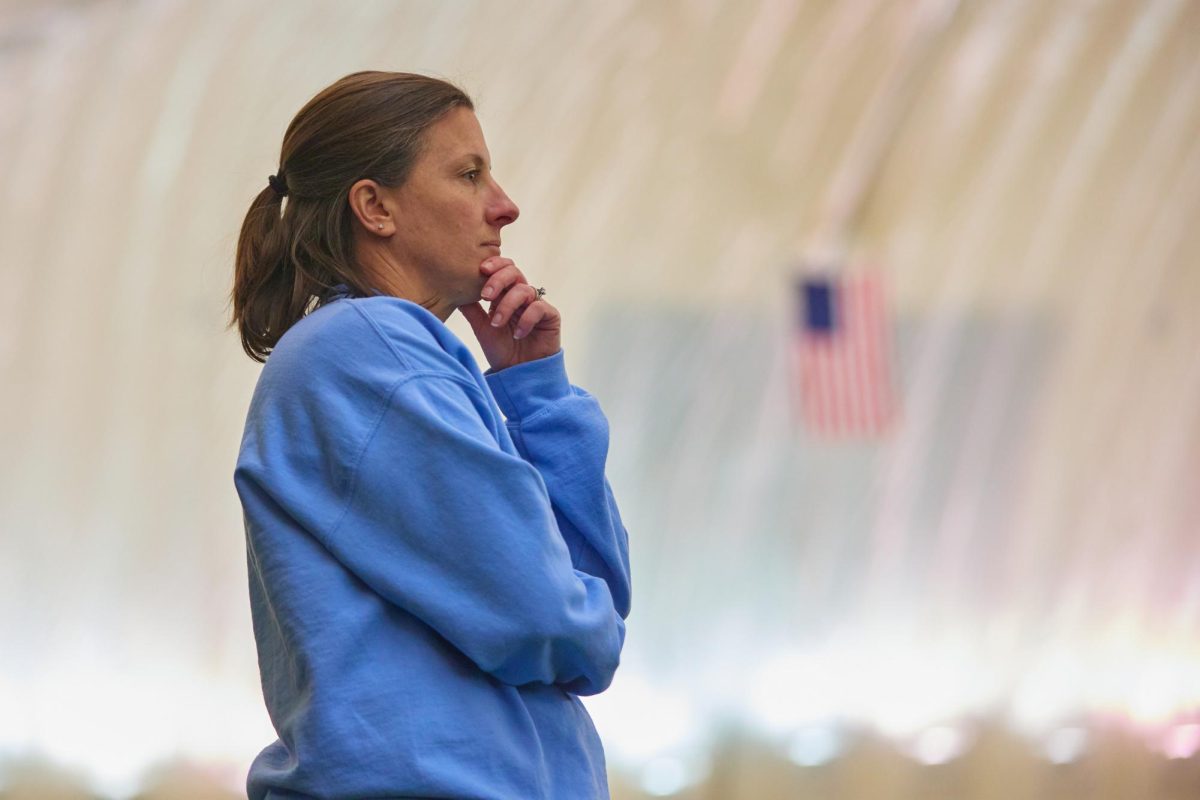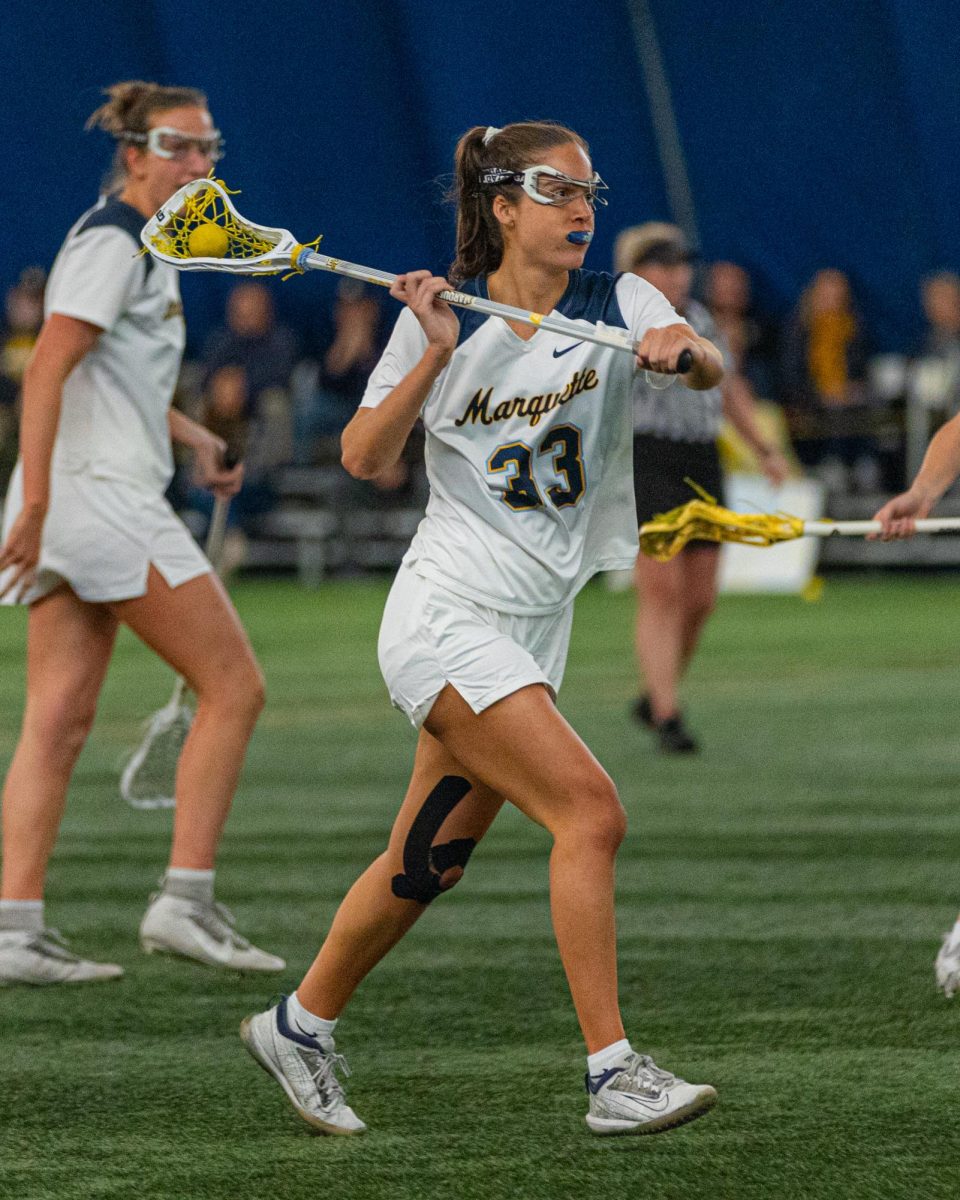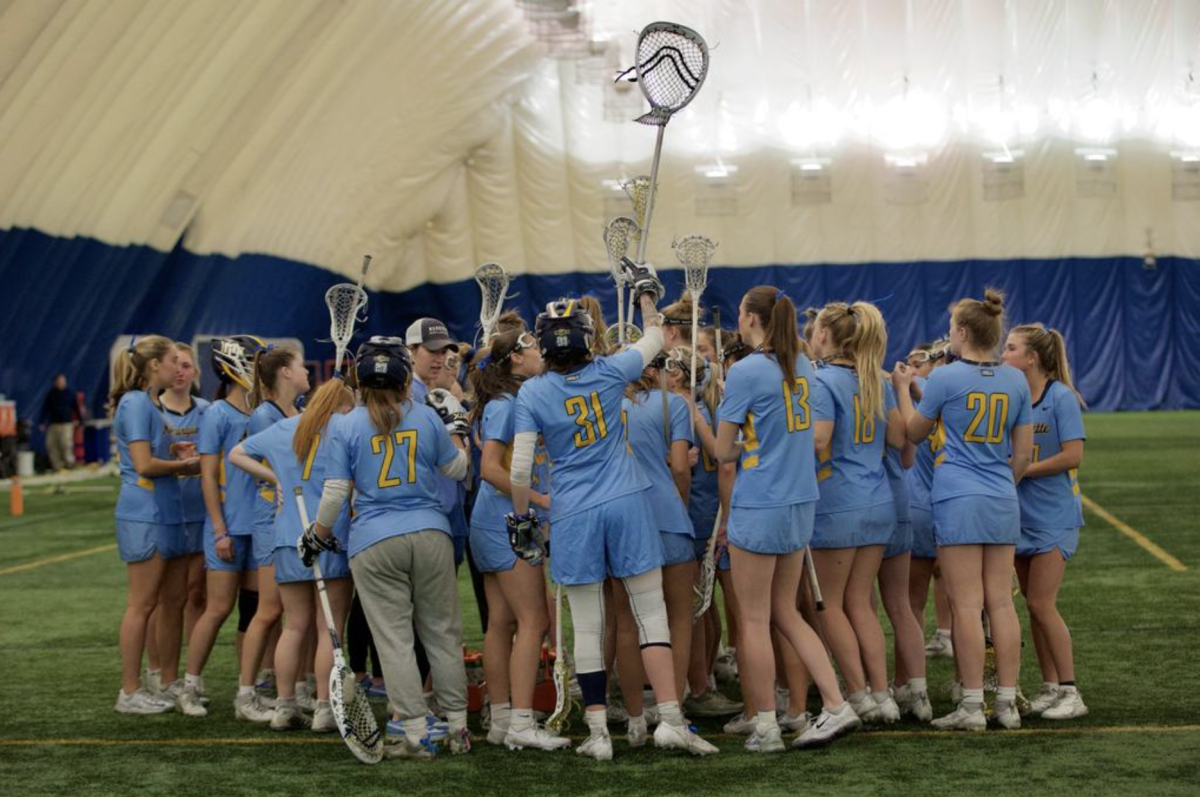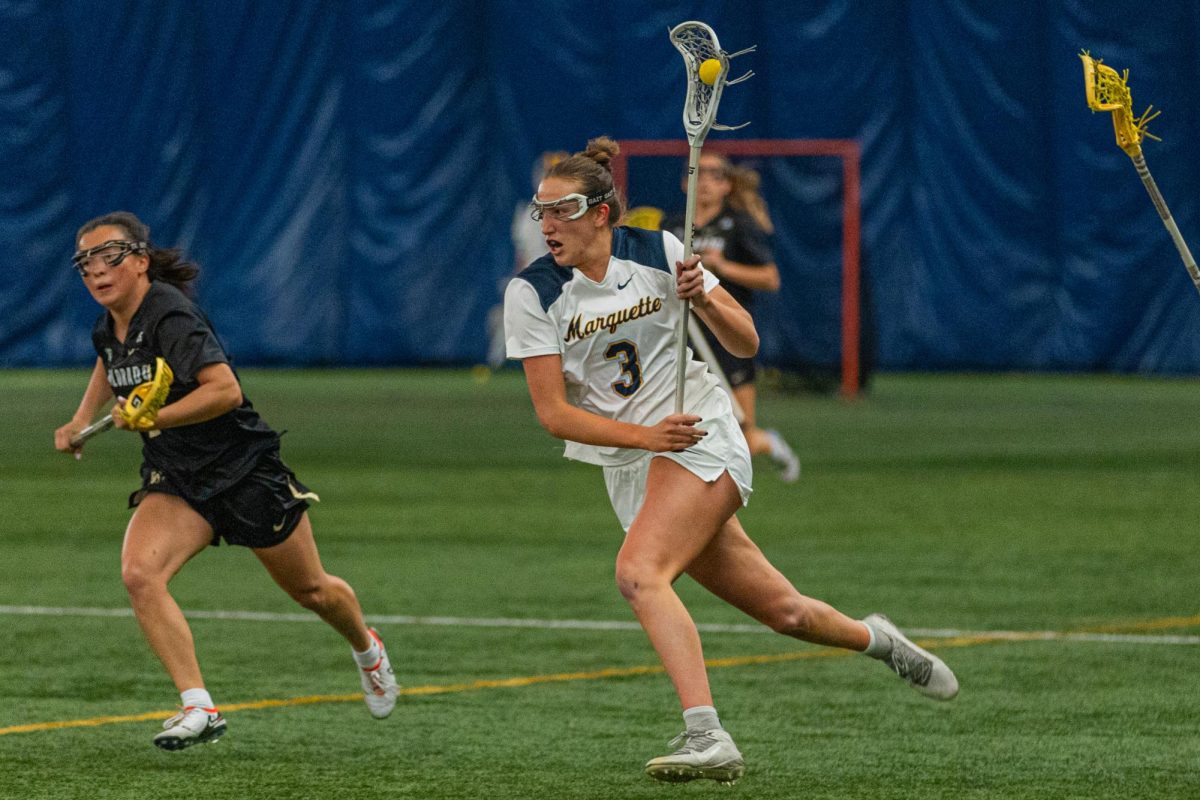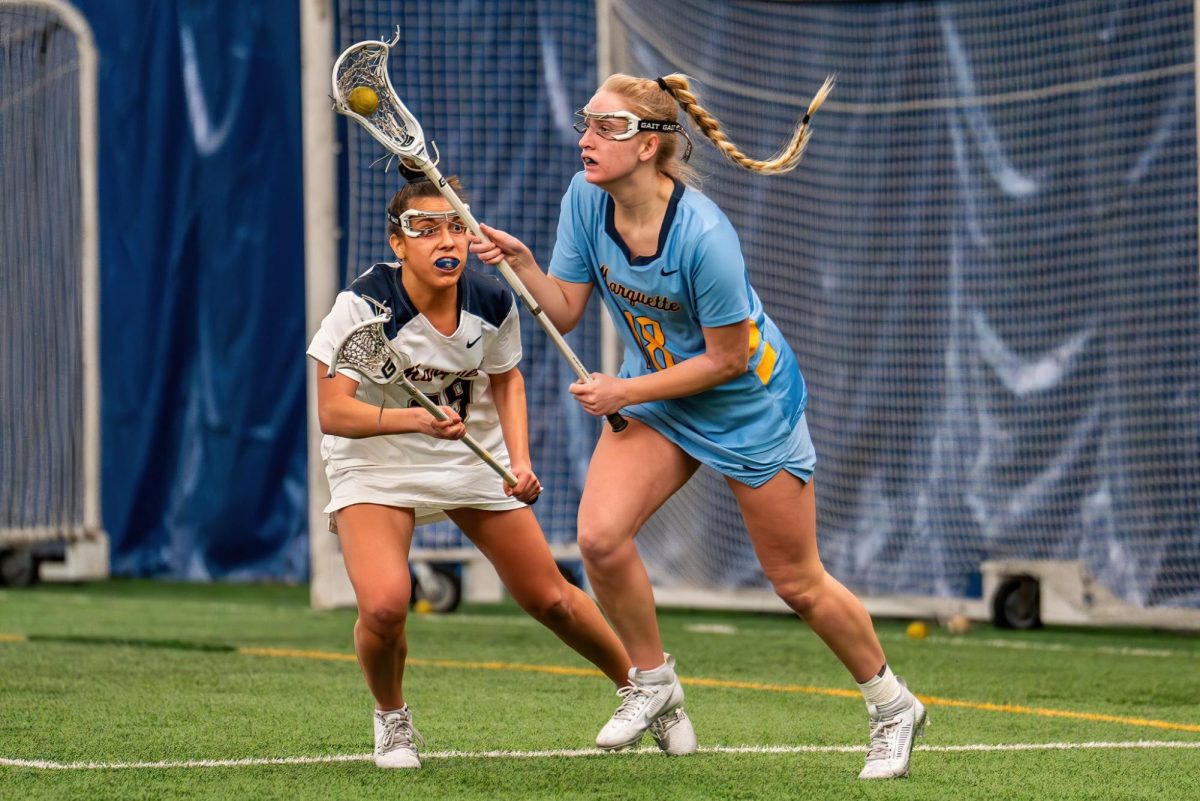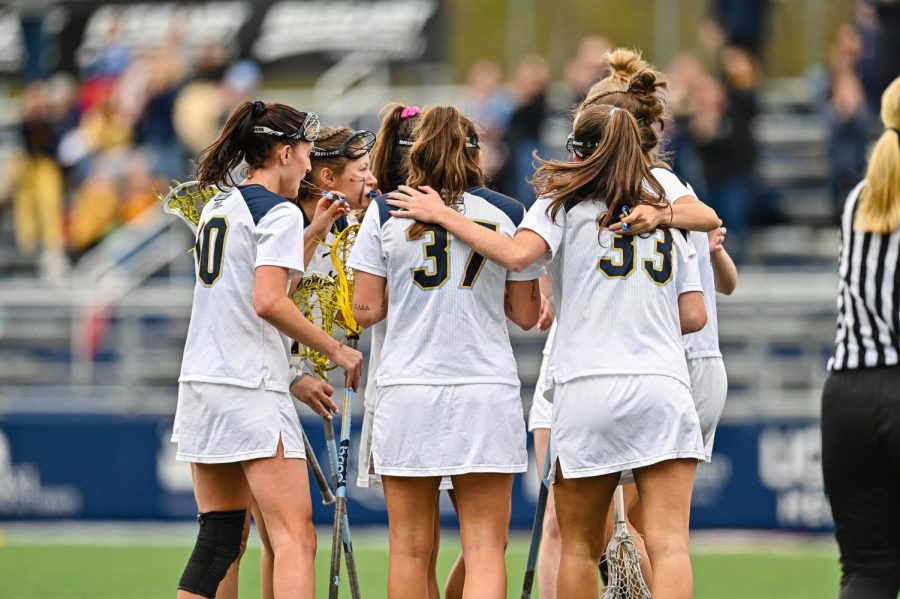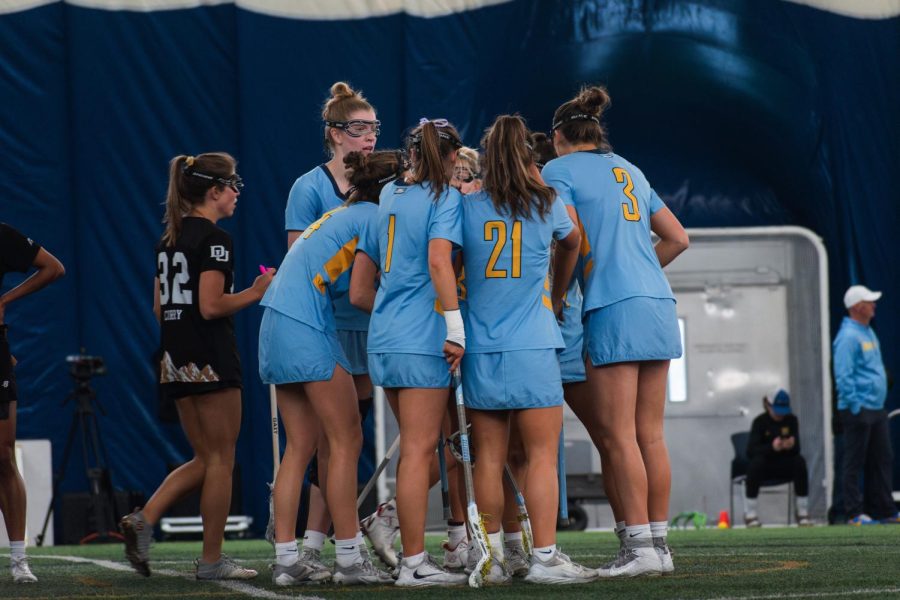After failing to make the BIG EAST tournament for the second year in a row following the 2020-21 season, Marquette women’s lacrosse head coach Meredith Black, along with assistant director of sports performance Stu Roche met to discuss the training regimen for the team.
What followed this discussion was the creation of a new training program for the team.
While this was all implemented after the 2020-21 season, Black said this is something that she and Roche have been discussing with the players for years.
“We collect feedback at the end of the season, every year, and I think for the past couple years there has been a trend in the direction of girls wanting to push a little harder, or positive feedback from the lifts,” Black said.
Black said it was a good time to change things up because of how little the team could do in these areas due to the COVID-19 pandemic.
“This year those restrictions were lifted, so it really made sense to make that switch over now because it was an easy transition,” Black said.
This new program began in the summer after all the players had gone home to start their personal training.
With the team being scattered across the country, one of the main concerns for Roche and Black was being able to keep the team engaged in what they were doing during the summer with everyone “being left to their own devices.”
“One of the silver linings of the pandemic is that we have been able to transition from what we have previously done in sending the players home with a few pieces of paper in hand from the last meeting of the semester that we just detail their program,” Roche said.
Beyond that, Roche and Black came up with a way to keep the team connected and accountable by using what is called a “penny swap.”
“They have pennies or vest tops that they wear that have their number on there, we just dump them in a pile in the middle of the room at the end of the semester and they would randomly pick a penny of the pile and they will be your ‘accountability buddy’ for the summer,”
After the team returned to campus for the fall, Roche said the program centered around catering the program to each athlete, whether it be lifts, workouts or what he calls maximum aerobic speed (MAS) running in which an athlete goes from an aerobic to anerobic state in the run.
“So they would not be able to sustain that speed anymore for an extended period of time,” Roche said. “We’re basically looking for that threshold that their fitness can carry their speed and so every athlete is evaluated with the yoyo intermediate run test and the yoyo IRP 1 and so we get a score from that and which we can convert into an estimated maximum aerobic speed.”
After implementing these new measures when the team came back in the fall, Black said she was excited with where the team was at in terms of their shape.
“The fall was incredible, our girls at the end of the season were in just unbelievable shape, everyone was running faster than they ever had and it showed in the numbers,” Black said.
Many of the players, including senior midfielder Lydia Foust, said that this is the hardest the team has worked heading into her third season with the team.
“I think the coaches really pushed us, I think because of COVID-19 we were held back a little bit in terms of what we could do and this year they fully pushed us to our max level with our strength coach with us multiple times a week,” Foust said. “Really we’re just in the best shape any of us have been in and so it was definitely difficult but prepared us for these upcoming games.”
With all that hard work, Black said she believes that it helped bring the team together heading into the season.
“Going into this year I think the team was the closest-knit team maybe since our first year of our program,” Black said. “Whenever you have to take on a a really challenging situation together as a group it just automatically helps you grow closer in connectedly, so I think them going through this in the fall was great because it was challenging.”
This story was written by Jackson Gross. He can be reached at [email protected] or on Twitter @JacksonGrossMU.

